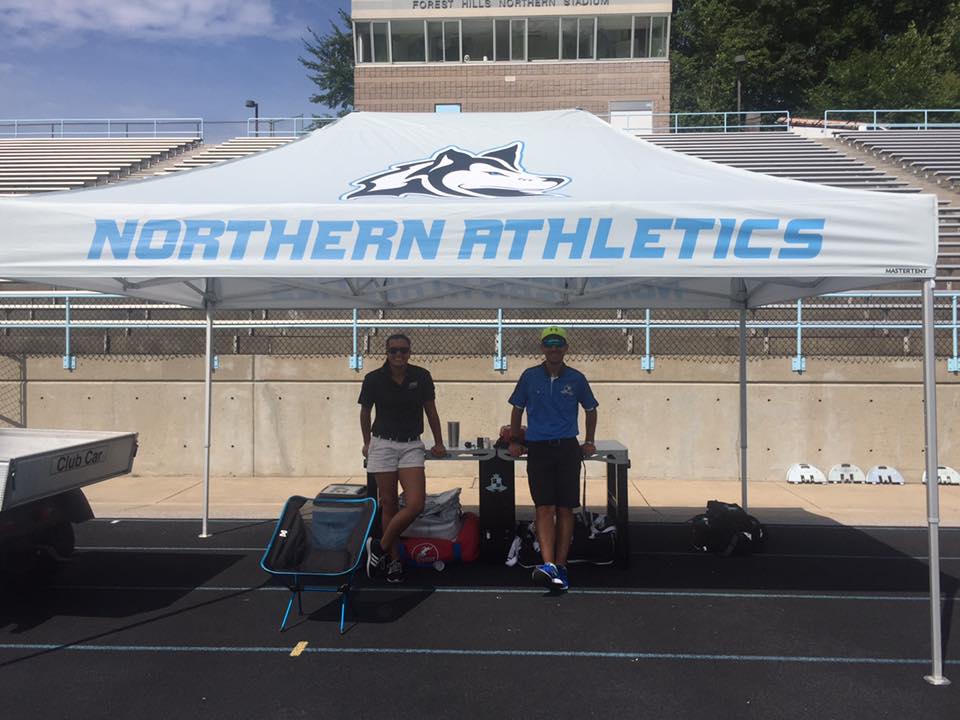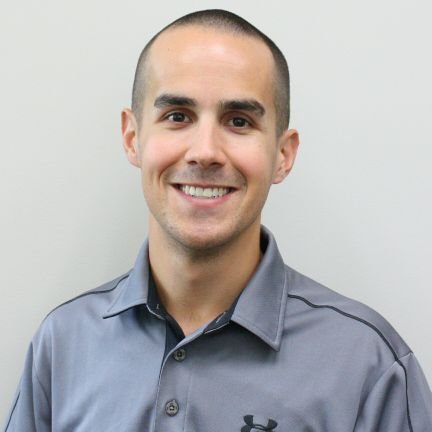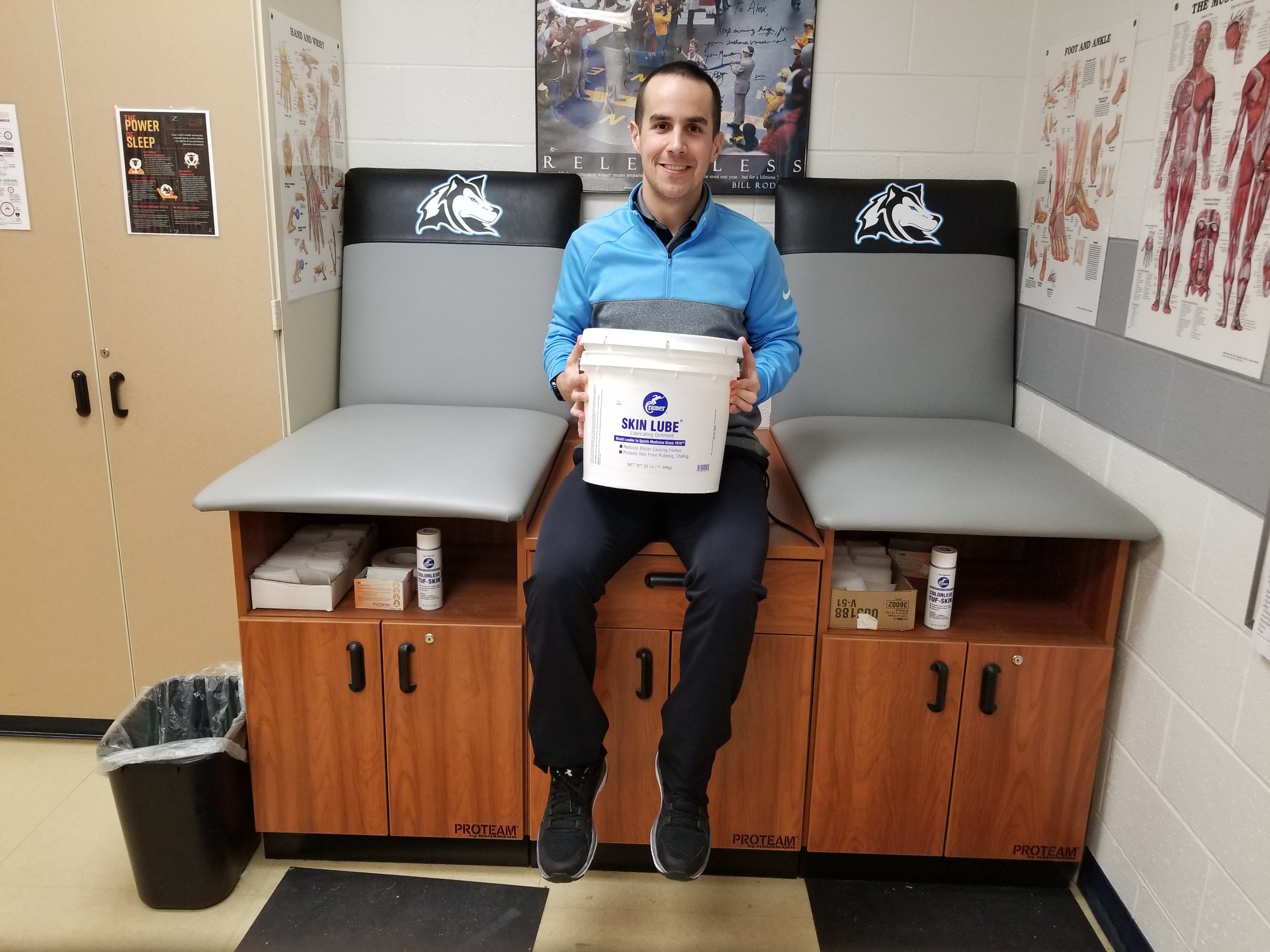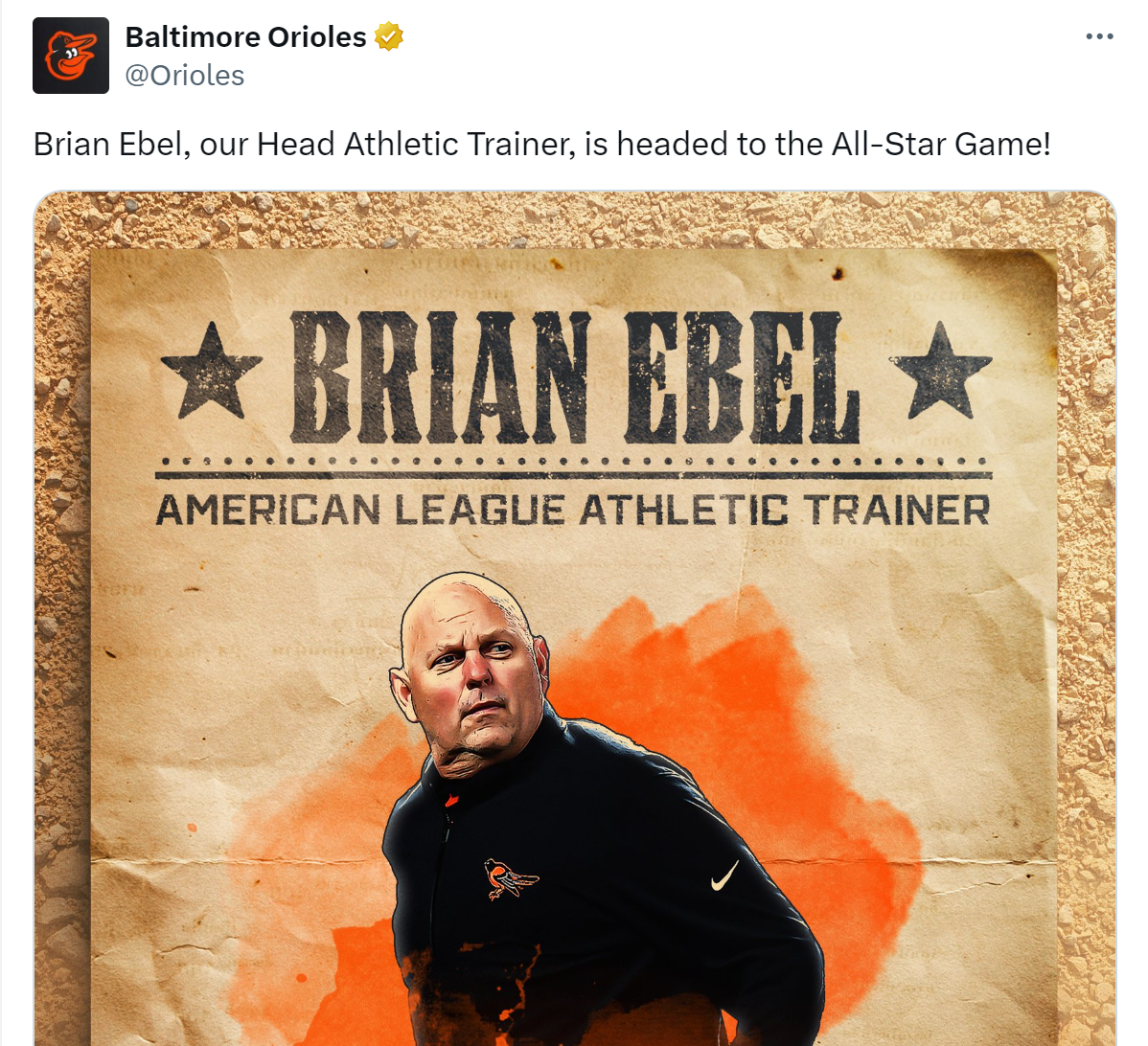All Star Athletic Trainer: Alex Salinas
Alex Salinas, MS, AT, ATC, CSAS - The Center for Physical Rehabilitation (CPR) / Forest Hills Northern High School

Alex Salinas still can’t figure out why he became an athletic trainer, but he knows exactly why he has stayed in the profession: the relationships he’s fostered and the continual challenge of his role. Alex provides athletic training services to Forest Hills Northern High School in Grand Rapid, Michigan in association with The Center for Physical Rehabilitation. Along with earning his B.S. in Athletic Training from Grand Valley State University in 2012, Alex also received an M.S. in Exercise Science with a concentration in Sports Medicine from the University of Delaware in 2014.
During his career, Alex has been honored with multiple recognitions and awards, including being recognized as the CPR Shining Star in 2017 and the GVSU 2017-2018 Preceptor of the Year. Forest Hills Northern High School has been designated as a NATA Safe Sports School and is part of the 1st Team (2017-2020) during Alex’s tenure.
Healthy Roster Marketing & Engagement Specialist Sarah Emery has been impressed with Alex’s use of the Healthy Roster platform, especially the Reports features:
“I’ve loved seeing how Alex has used Healthy Roster to further his success as an athletic trainer. He has been able to validate the costs of the treatments services he provides to Forest Hills Northern High School and have a deeper understanding of the injuries that have occurred over the past year. He’s been able to take Healthy Roster’s already robust data and reporting features and tailor the information to help keep his athletes safer and healthier while also demonstrating the value athletic trainers bring to our world.”



To hear from Alex himself about his experiences in the athletic training field, check out his responses below:
Why did you become an Athletic Trainer?
You know, this question is posed to me a few times each year and I still can't figure out why I became an AT. I was originally pre-physical therapy, but after my first clinical rotation in the GVSU AT program (at Calvin College, also in Grand Rapids), I knew that I wanted AT as my primary focus. I'm competitive by nature and being around athletes seems to supplement that well. I may not know why I became an AT, but I know why I have stayed an AT: the relationships with peers, mentors, parents, coaches, and the student-athletes. Plus, I enjoy challenges and athletic training has plenty of those ranging from rehabilitation to difficult conversations.
Without sharing any PHI of course, what is your most memorable moment as an Athletic Trainer?
I could pretty much list any soccer playoff game as well as a handful of basketball and football games, but the wins/losses are the easy memories to dredge up. Genuine "thank-you's" help keep the motor running. There is a particular sporting event that comes to mind, but it's difficult to explain in so few words. I will put it like this: it was such a stellar performance on the track that I knew it ensured the student-athlete would be able to take their talents to the collegiate level, both athletically and academically.
What advice would you give others, either in the profession or considering becoming an Athletic Trainer?
For people in the profession: keep showing up and maintaining a high standard of care. Thank you for what you do. Take time for yourself each day and have a support system inside or outside of the profession. Keep work at work and do not bring it home.
For those considering entering the profession: there is no better time to become an athletic trainer. Our predecessors have laid a foundation for success. We continue to gain support from local/state legislature and current ATs are setting examples in their communities. High school students, speak with your AT about what they perceive as the pros and cons as well as possible observation hours. College students, speak to your advisors!
What do you feel people outside of your profession should know about Athletic Trainers?
We are your sports medicine resource. While all of us can tape ankles (probably blindfolded, too), we do so much more than that. Being on the sideline is the tip of the iceberg and the fun part of the job. We can help you or your child(ren) maintain or get back to optimum health. Seeing people return to a sport they enjoy is a reward in itself.
What is the key to being successful in Athletic Training?
You have to "show up" every day. Yes, there are less glamorous parts of the job and yes, you're busy--but it's part of the job! Communicate, communicate, communicate. Document and hold yourself and patients accountable. Understand that mistakes are inevitable--no one is perfect--learn from those mistakes. Do not take yourself too seriously and keep the ego in check. Winning is great, patient health is greater. Oh, and dry clothes and socks go a long way, so acquire rain gear and water resistant shoes before it is too late. Like many things, it is better to have it and not need it than to need it and not have it.
![HR Logo [Recovered]_Full Color Vertical-1](https://blog.healthyroster.com/hs-fs/hubfs/HR%20Logo%20%5BRecovered%5D_Full%20Color%20Vertical-1.png?width=199&height=178&name=HR%20Logo%20%5BRecovered%5D_Full%20Color%20Vertical-1.png)


